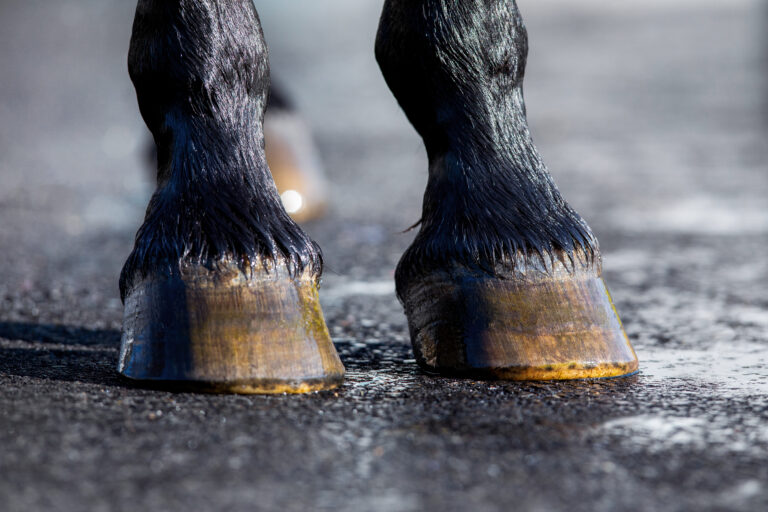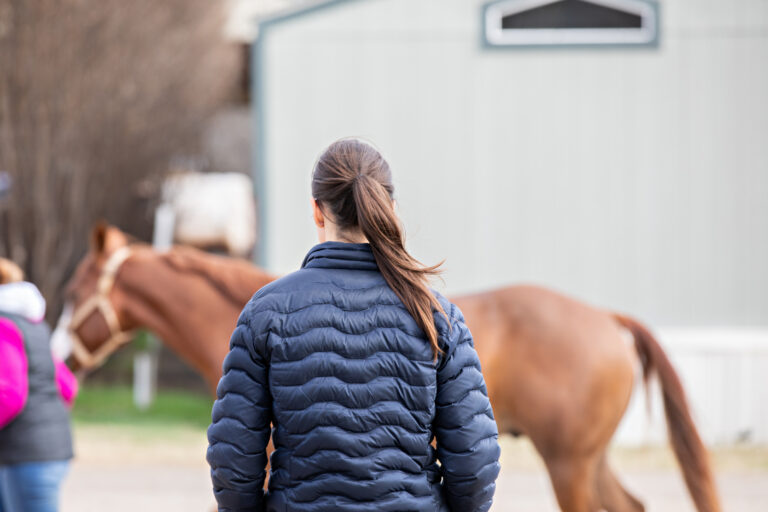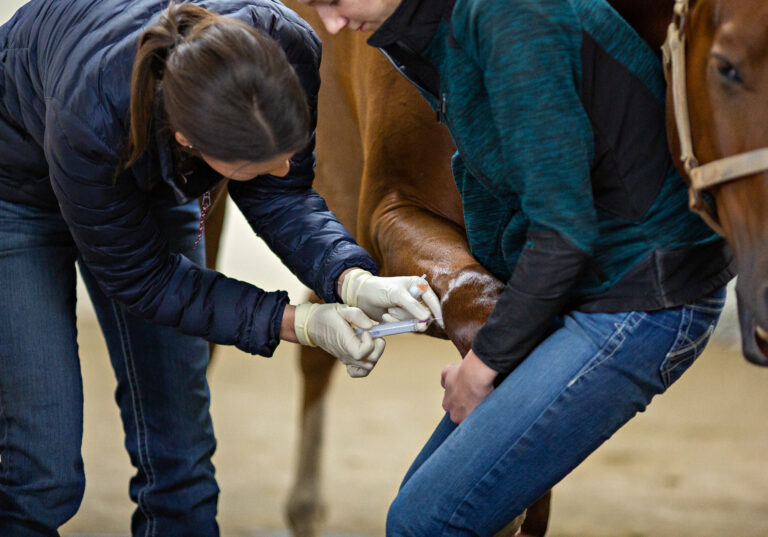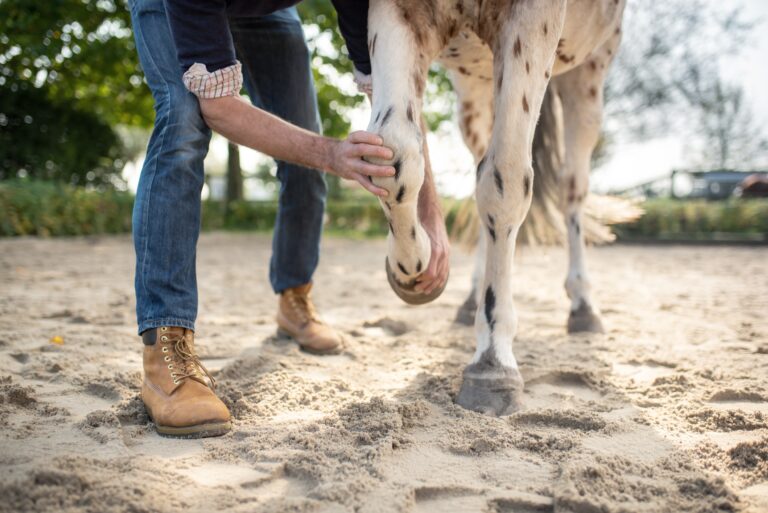
Horses are often trailered short distances for events, recreation or routine care appointments. Trailering, especially long distances, can increase stress and decrease immune function. Older horses might be more prone to changes in immune function when trailered. Researchers evaluated the stress and immune response between young and aged horses when trailered a short distance.
Study on Stress and Immune Responses in Traveling Horses
Researchers conducted the study using six aged (22 ± 1 years) and six young (2 ± 1 years) mares of similar body weight and body condition scores. A pair of aged and young horses were hauled in a livestock trailer on one of three days during a two-week period. Each trip occurred at the same time of day, followed the same route (mostly highway), and lasted an hour and 20 minutes (55 miles). Blood and saliva samples were taken two to three weeks before hauling (baseline), an hour before hauling, and several timepoints after hauling (15 minutes to 8 days). Data from one aged mare was omitted from the study due to baseline bloodwork that indicated potential endocrine disorders (pars pituitary intermedia dysfunction and insulin dysregulation).
Study Results
Both age groups elicited an acute stress response from trailering a short distance. The researchers observed elevated heart rates, cortisol levels, and adrenocorticotropic hormone (ACTH) levels in the horses after trailering. However, ACTH was higher in the aged horses compared to the young horses. Additionally, the aged horses had a greater insulin response to trailering than the young horses. Three hours post-trailering, the aged horses had insulin levels above the reference level used to diagnose insulin dysregulation. All stress-related parameters returned to baseline levels within 24 hours of trailering.
Final Thoughts
Trailering short distances can cause an acute stress response in young and aged horses. Aged, metabolically normal horses had elevated insulin levels after trailering. This result might be an important consideration when hauling horses to a veterinary clinic and testing for endocrine disorders. Additionally, it highlights the need for further research to investigate the impact of trailering on insulin levels of horses diagnosed with endocrine disorders.
For more information on this research, read the abstract published in the Journal of Equine Veterinary Sciences.
Related Reading
Stay in the know! Sign up for EquiManagement’s FREE weekly newsletters to get the latest equine research, disease alerts, and vet practice updates delivered straight to your inbox.




